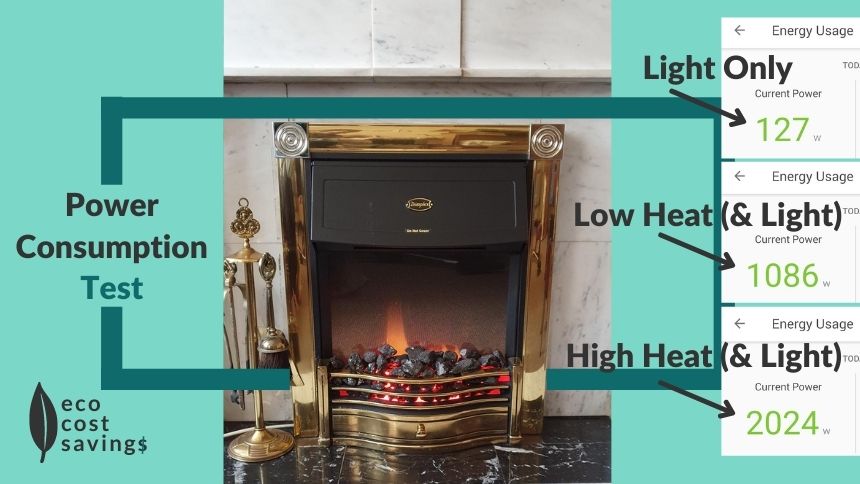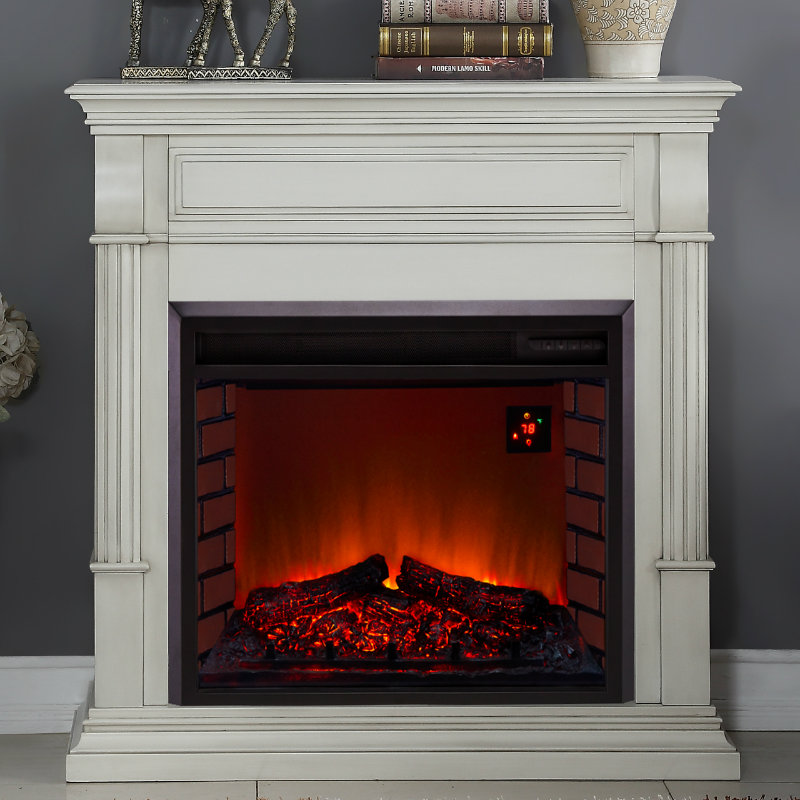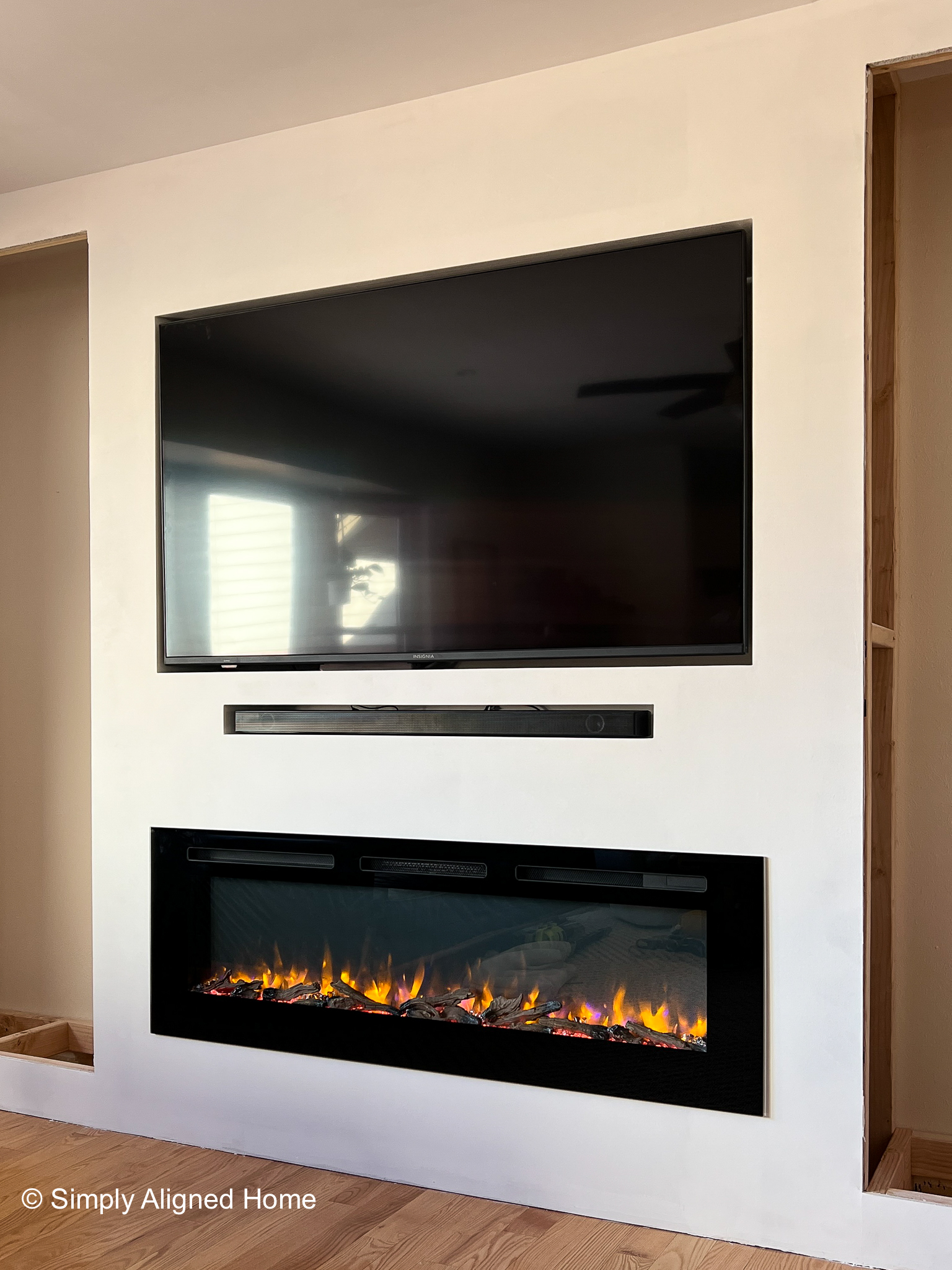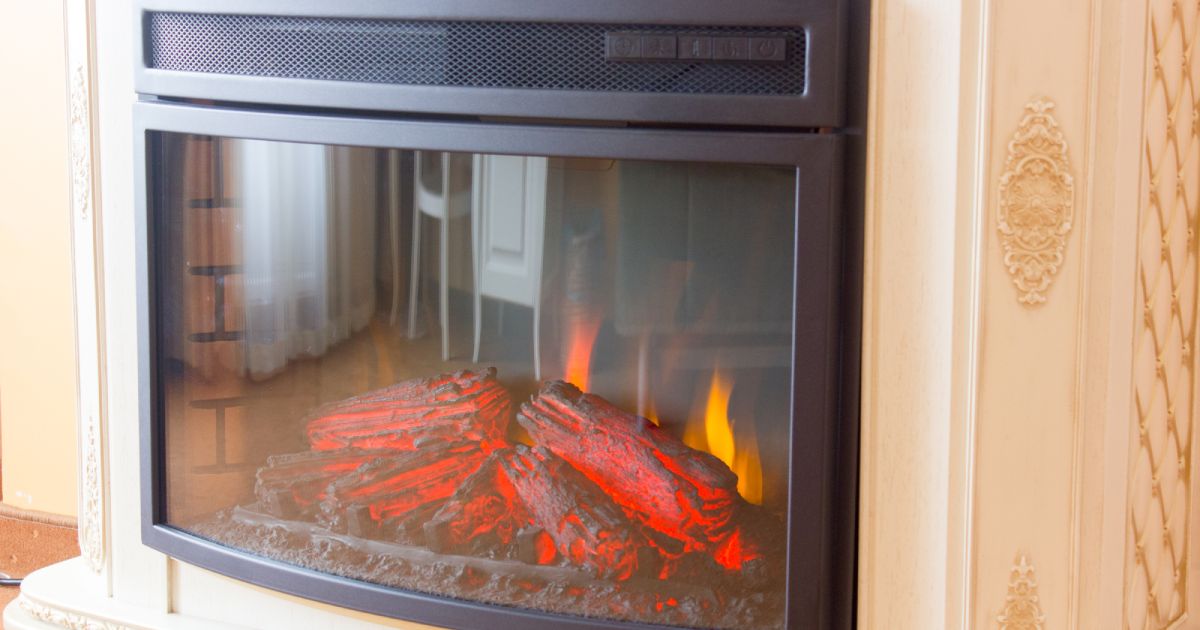Electric fireplaces can be cost-efficient heating options for many homeowners, offering several advantages over traditional wood-burning or gas fireplaces. One of the primary benefits of electric fireplaces is their energy efficiency. Unlike wood-burning fireplaces, which require constant fueling and produce emissions, or gas fireplaces, which can be costly to install and maintain, electric fireplaces operate using electricity, which is often more affordable and readily available than other fuel sources. Additionally, electric fireplaces are designed to provide efficient and consistent heat output, allowing homeowners to enjoy warmth and comfort without the need for expensive chimney maintenance or fuel purchases.
Images about Are Electric Fireplaces Cost Efficient
Are Electric Fireplaces Cost Efficient

Another factor contributing to the cost efficiency of electric fireplaces is their versatility and ease of installation. Electric fireplaces come in a variety of styles and sizes to suit different aesthetic preferences and heating needs, ranging from compact wall-mounted units to freestanding mantels with built-in heaters. Because they do not require venting or a chimney, electric fireplaces can be installed virtually anywhere in the home with access to a standard electrical outlet, making them a convenient and cost-effective heating solution for both new construction and retrofitting existing spaces. Additionally, many electric fireplaces are portable, allowing homeowners to move them from room to room as needed, providing supplemental heat where it’s needed most without the expense of installing multiple heating systems.
Furthermore, electric fireplaces offer cost savings in terms of maintenance and upkeep. Unlike wood-burning fireplaces, which require regular cleaning, chimney sweeping, and inspection to prevent creosote buildup and chimney fires, electric fireplaces require minimal maintenance and upkeep. The absence of combustion also eliminates the need for ventilation and reduces the risk of carbon monoxide poisoning or indoor air pollution, further reducing maintenance costs and health risks associated with traditional fireplace systems. Additionally, electric fireplaces typically come with long warranties and durable construction, providing homeowners with peace of mind and protection against unexpected repair or replacement costs.
While electric fireplaces may have higher upfront costs compared to some traditional fireplace options, their energy efficiency, versatility, and low maintenance requirements make them a cost-effective heating solution in the long run. By providing consistent warmth and ambiance without the hassle and expense of traditional fireplace systems, electric fireplaces offer homeowners a convenient and economical way to enhance the comfort and beauty of their living spaces while saving money on heating bills and maintenance costs.
Electric Fireplace Energy Efficiency Results
Are Electric Fireplaces Cost Efficient?
Why Electric Fireplaces Are Better?
Best Energy Efficient Electric Fireplaces in 2024
Reasons to Buy and Electric Fireplace Twin Star Home
Modern Flames – Are Electric Fireplaces Realistic?
Electric Fireplace Installation Costs: Are They Worth It?
Are Electric Fireplaces Energy Efficient?
Electric Fireplaces Buying Guide Free Shipping Sylvane
How Energy Efficient are Electric Fireplaces? – Essential Home and
Related Posts:
- Small Free Standing Electric Fireplace
- Electric Fireplaces White Finish
- Limestone Electric Fireplace
- Electric Fireplace Surround DIY
- Electric Fireplace With TV
- The Most Realistic Electric Fireplace
- Chalk Paint Electric Fireplace
- Victorian Style Electric Fireplace
- Electric Fireplace Real Looking Flame
- Amish Mantel Electric Fireplace
Are Electric Fireplaces Cost Efficient?
Electric fireplaces have become increasingly popular in recent years as a convenient and stylish alternative to traditional wood-burning fireplaces. Many people are drawn to electric fireplaces for their ease of use, clean operation, and ability to provide supplemental heat to a room. However, one common question that arises when considering an electric fireplace is whether or not they are cost-efficient in the long run. In this article, we will take a closer look at the cost efficiency of electric fireplaces and explore the factors that can impact their overall operating costs.
Energy Efficiency of Electric Fireplaces
One of the key factors that determine the cost efficiency of an electric fireplace is its energy efficiency. Electric fireplaces are designed to convert electricity into heat using heating elements and fans. The efficiency of an electric fireplace can vary depending on factors such as the quality of the components, insulation, and size of the room being heated.
Are electric fireplaces energy efficient compared to traditional wood-burning fireplaces?
Electric fireplaces are generally more energy efficient than traditional wood-burning fireplaces because they do not lose heat through a chimney or flue. All the heat generated by an electric fireplace stays in the room, making them more efficient at heating small spaces.
Cost of Operation
The cost of operating an electric fireplace will depend on several factors, including the electricity rate in your area, how often you use the fireplace, and the temperature you set it to. On average, it costs between $0.08 to $0.24 per hour to operate an electric fireplace.
How does the cost of operating an electric fireplace compare to other heating methods?
The cost of operating an electric fireplace is typically lower than using traditional heating methods such as gas or oil furnaces. Electric fireplaces only heat the room you are in, whereas central heating systems can be more costly to run because they heat an entire house.
Installation Costs
The initial cost of purchasing and installing an electric fireplace can vary depending on the type and model you choose. Wall-mounted electric fireplaces tend to be more expensive than freestanding models, and custom-built units can also drive up installation costs.
Are there any additional costs associated with installing an electric fireplace?
Depending on your home’s electrical setup, you may need to hire a licensed electrician to install a new circuit or upgrade existing wiring to accommodate an electric fireplace. This could add to the overall installation costs.
Maintenance and Repairs
Electric fireplaces require minimal maintenance compared to traditional wood-burning fireplaces. However, like any appliance, they may require occasional repairs or part replacements over time. Some common maintenance tasks for electric fireplaces include cleaning the glass front and checking for any loose wiring.
How much does it cost to maintain an electric fireplace?
The cost of maintaining an electric fireplace is relatively low compared to other types of heating appliances. Regular cleaning and inspections can help prevent major issues from occurring, reducing the need for costly repairs.
Long-Term Cost Efficiency
In the long run, electric fireplaces can be a cost-efficient option for heating your home if used wisely and efficiently. By carefully managing your usage and taking steps to improve energy efficiency in your home (such as adding insulation or sealing drafts), you can maximize the cost savings associated with using an electric fireplace.
Will using an electric fireplace as the primary source of heat significantly reduce my energy bills?
Answer: Using an electric fireplace as the primary source of heat can help reduce your energy bills, especially if you are only heating one or two rooms in your home. However, it may not be as cost-efficient as using a central heating system to heat the entire house. It’s important to consider factors such as insulation, room size, and energy rates when evaluating the long-term cost efficiency of an electric fireplace
Electric fireplaces can be a cost-effective way to heat specific rooms in your home, especially if you don’t need to heat the entire house. However, it’s important to consider several factors when evaluating the long-term cost efficiency of using an electric fireplace as your primary source of heat.
One important factor to consider is the insulation in your home. If your home is well-insulated, an electric fireplace can be more cost-efficient as it will retain the heat generated by the fireplace and prevent it from escaping. On the other hand, if your home is poorly insulated, the heat generated by the fireplace may escape easily, leading to higher energy bills.
Room size is another important factor to consider. Electric fireplaces are ideal for heating smaller rooms or specific areas in a larger room. If you are only looking to heat one or two rooms in your home, an electric fireplace can be a cost-effective option. However, if you need to heat multiple rooms or a larger area, using a central heating system may be more efficient in the long run.
Last, it’s important to consider your energy rates when evaluating the cost efficiency of an electric fireplace. Electricity rates can vary depending on where you live, so it’s important to calculate how much it will cost to run an electric fireplace compared to other heating options.
While using an electric fireplace as your primary source of heat can help reduce your energy bills, it may not always be as cost-efficient as using a central heating system. It’s important to consider factors such as insulation, room size, and energy rates when determining the long-term cost efficiency of an electric fireplace for your home.
Overall, electric fireplaces can provide cost savings if used wisely and efficiently as a primary source of heat. Factors such as insulation, room size, and energy rates should be considered when evaluating the long-term cost efficiency of using an electric fireplace. By carefully managing your usage and taking steps to improve energy efficiency in your home, you can maximize the benefits of using an electric fireplace for heating.

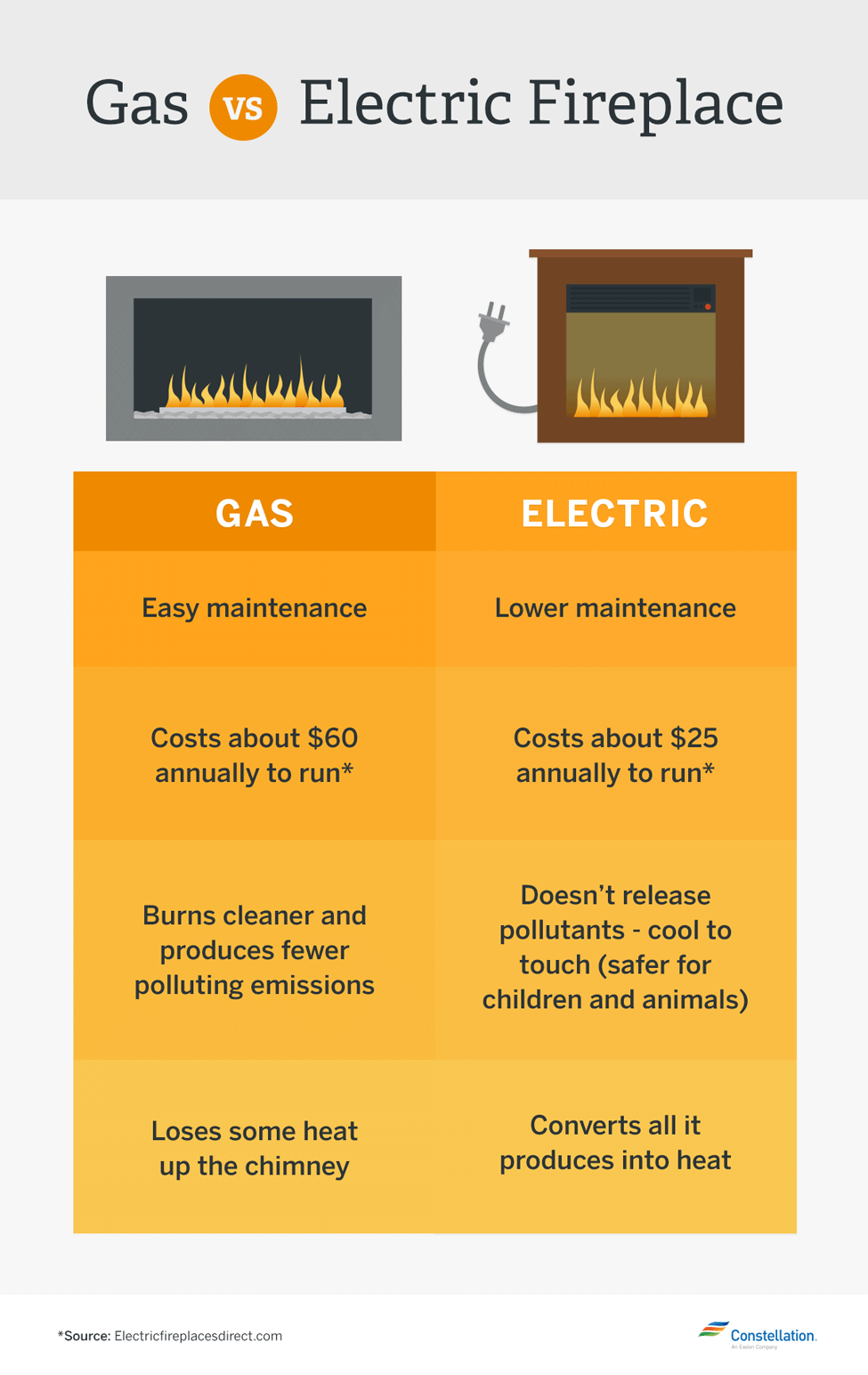
.jpg)
